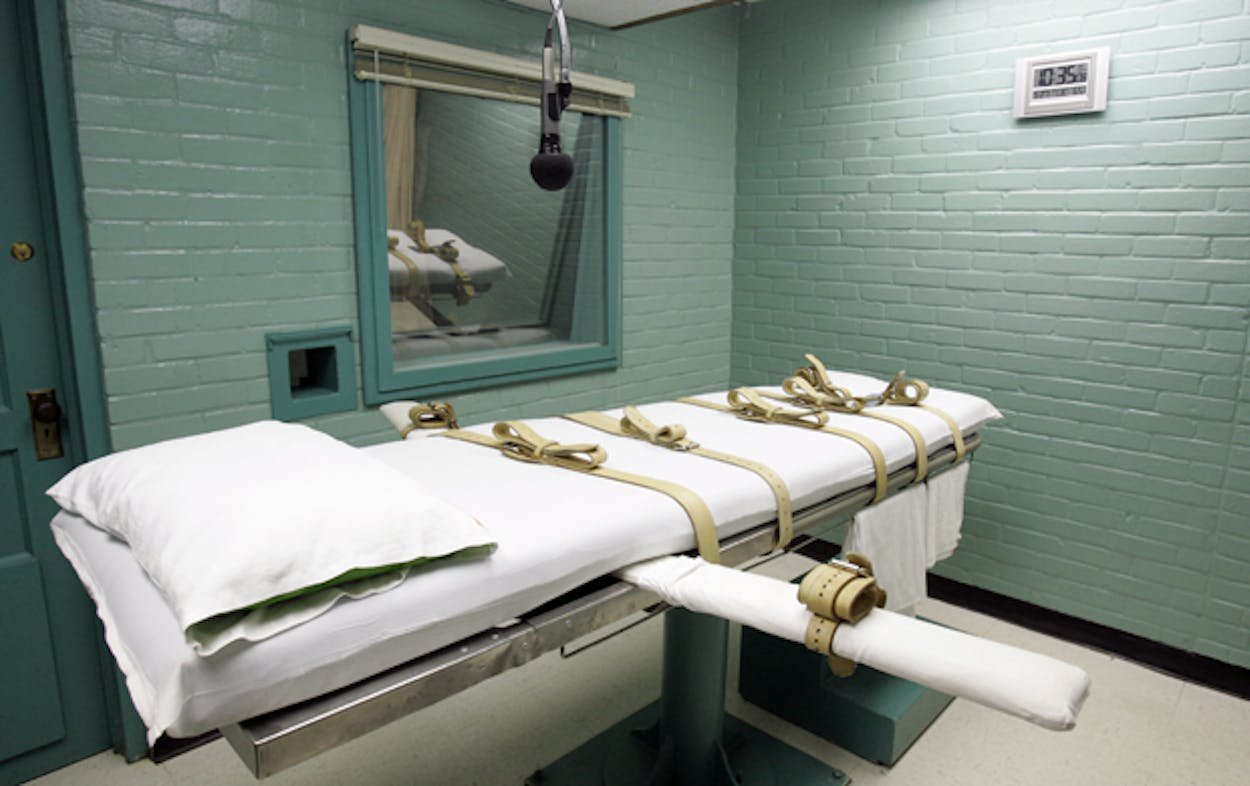The TDCJ doesn’t want to release information on the size of the death penalty drug stockpile at the state’s disposal, because, as Allan Turner of the Houston Chronicle reports, the department believes that if it released this information, manufacturers and suppliers would be put at risk.
The department claims that publicizing this information would prompt the British anti-death penalty group Reprieve (and others like it) to harass drug companies to discontinue sales for the purpose of executing prisoners. In a statement, assistant general counsel at TDCJ Patricia Fleming said, “It is not a question of if, but when, Reprieve’s unrestrained harassment will escalate into violence.”
TDCJ recently filed a brief that tries to keep all of this information private after both an expenditure inquiry from the Austin American-Statesman and a public information request from Guardian journalist Ed Pilkington to determine how much pentobarbital—one of the three drugs used to carry out executions—was on hand in the state. Pilkington also wanted to know how TDCJ met the requirement to have “back up” doses ready for executions.
He writes:
Texas has only sufficient quantities in its stores of pentobarbital–-the middle drug of the triple lethal injection-–to serve in six more executions. That number of executions are scheduled to take place on the state’s books over the next four months.
Since the time that Pilkington wrote his article, three state executions have taken place, which means there should only be enough to last another for another three executions. But last week, the Statesman reported the TDCJ spent $50,000 on medical supplies that likely included ingredients for the lethal injection “cocktail.” Records show that on May 4 last year, the state purchased $22,928.76 on supplies from Physician Sales & Service and the next day obtained 39 vials of Nembutal (a brand name for pentobarbital) from the same company for $24,839. The first day of June, the state paid another $1,910.73 to the company, but again, no details were listed about these purchases.
Over the course of a year, the cost of each execution has increased from $83.35 to $1,286.86. Texas swapped sodium thiopental for pentobarbital last year after the only United States manufacturer Hospira stopped producing the drug. And just in time, it appears–a U.S. federal judge blocked the import of sodium thiopental last week, saying the FDA ignored a law that refused admission of unapproved drugs manufactured overseas.
As for the TDCJ’s claim that the prison system’s drug suppliers could face potential threats from Reprieve? Pilkington called it “pretty far-fetched.” He told the Chronicle, “I was very surprised by the language they chose to use, which was pretty inflammatory, really. Obviously, there is an international disagreement over the death penalty. … Usually that discourse is conducted in a civilized manner.”
The attorney general will respond to the TDCJ’s request to keep this privileged information later this month, but until then, the department is keeping tight-lipped on the stock of drugs available.






